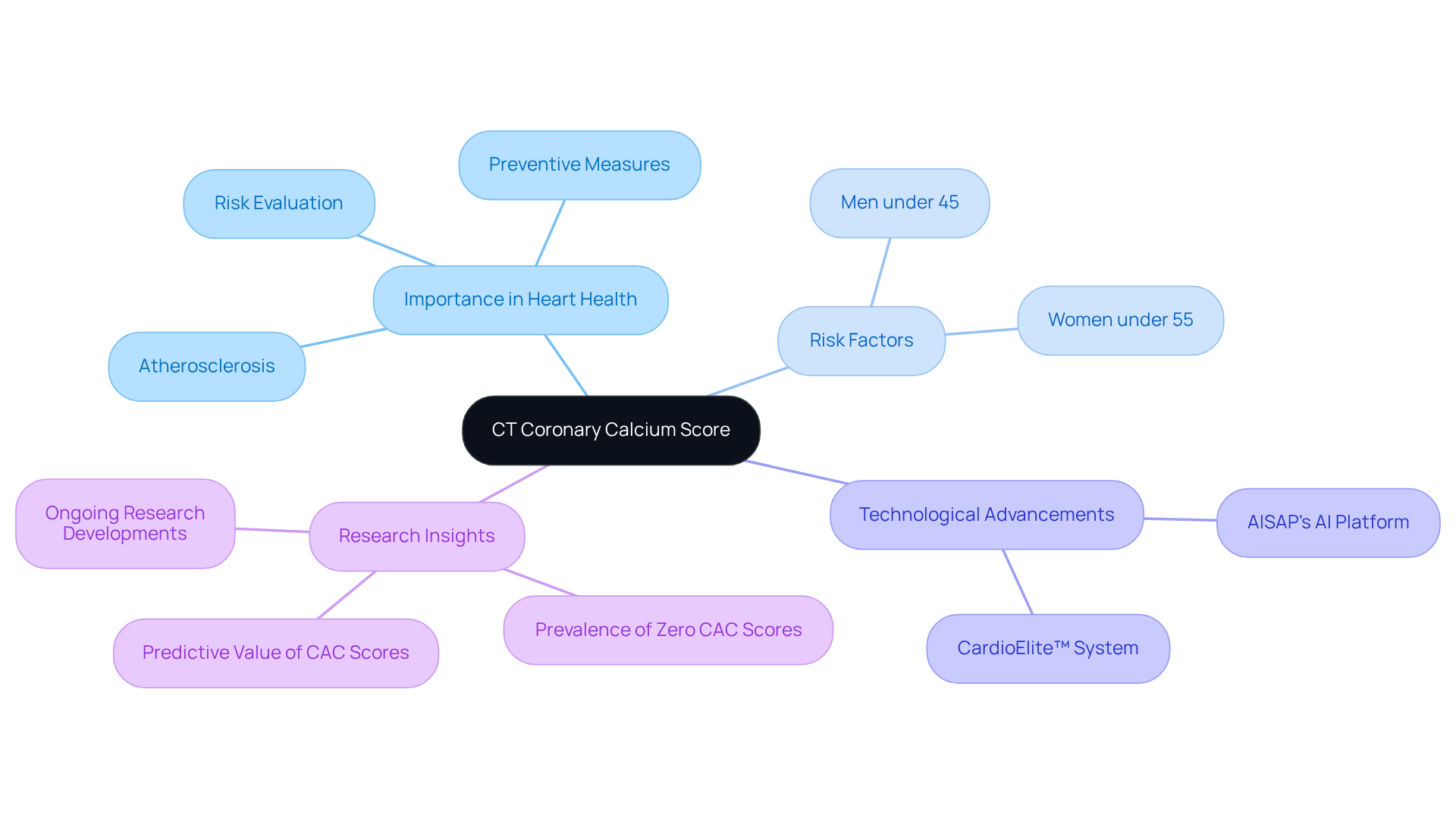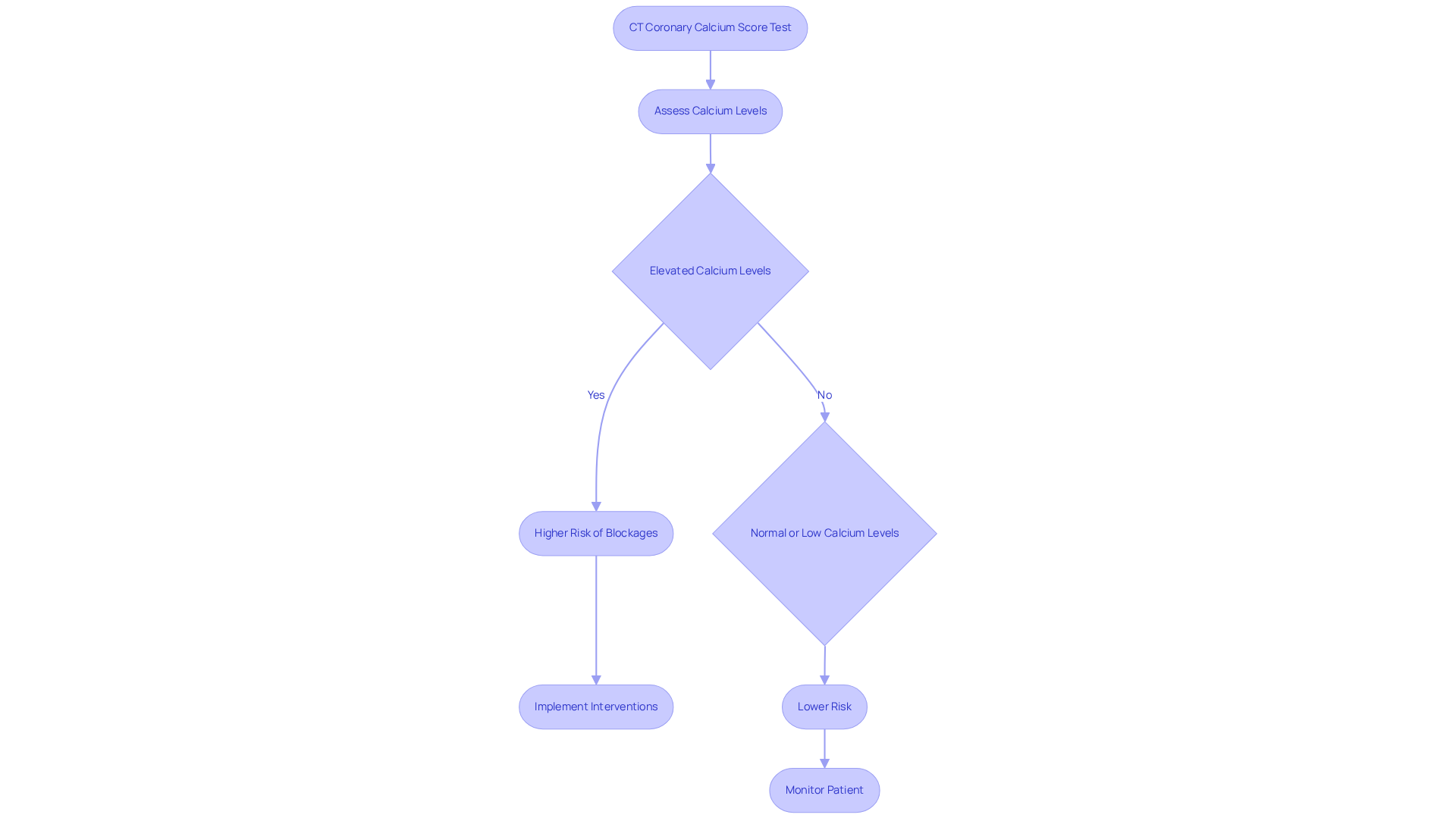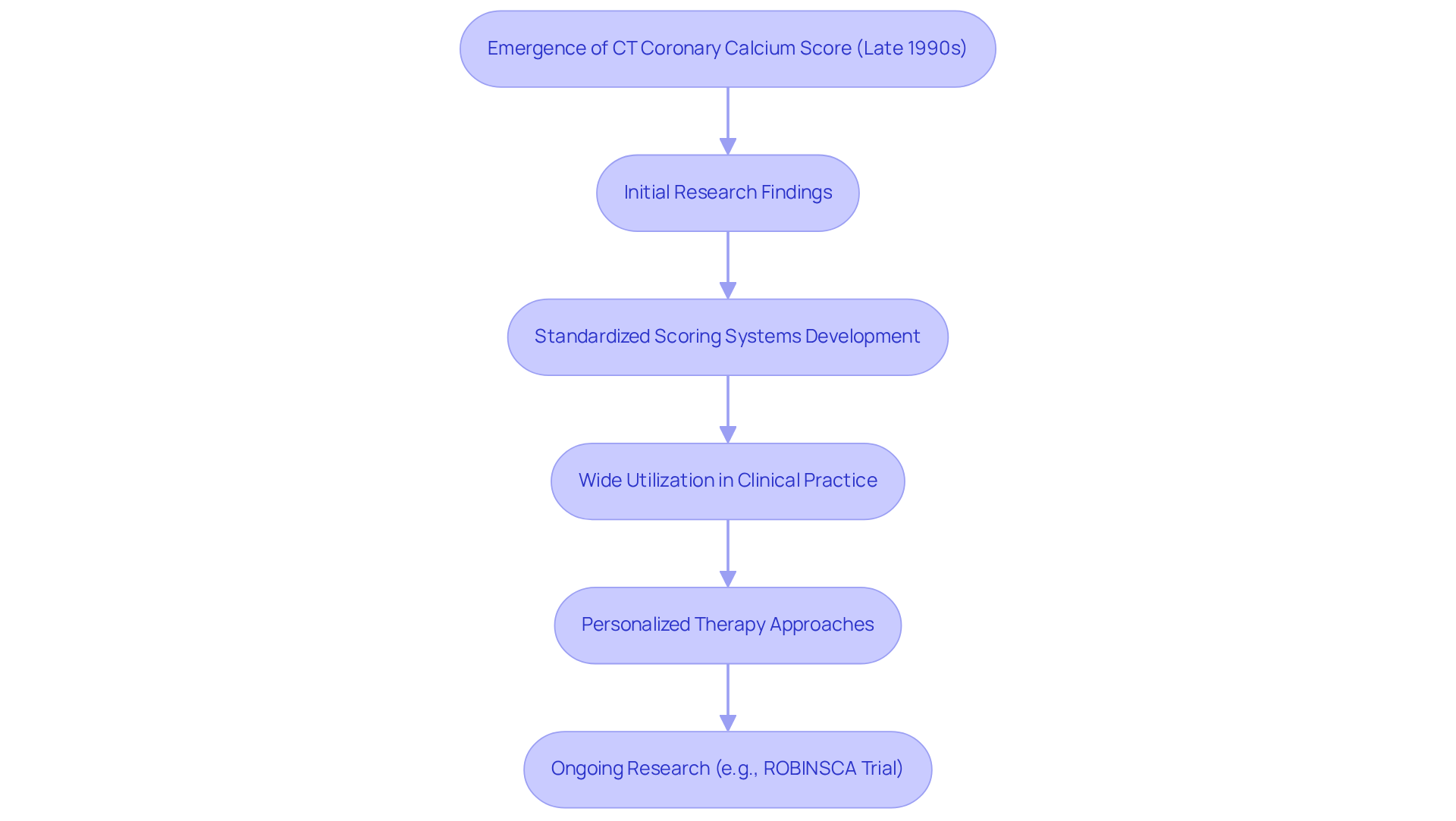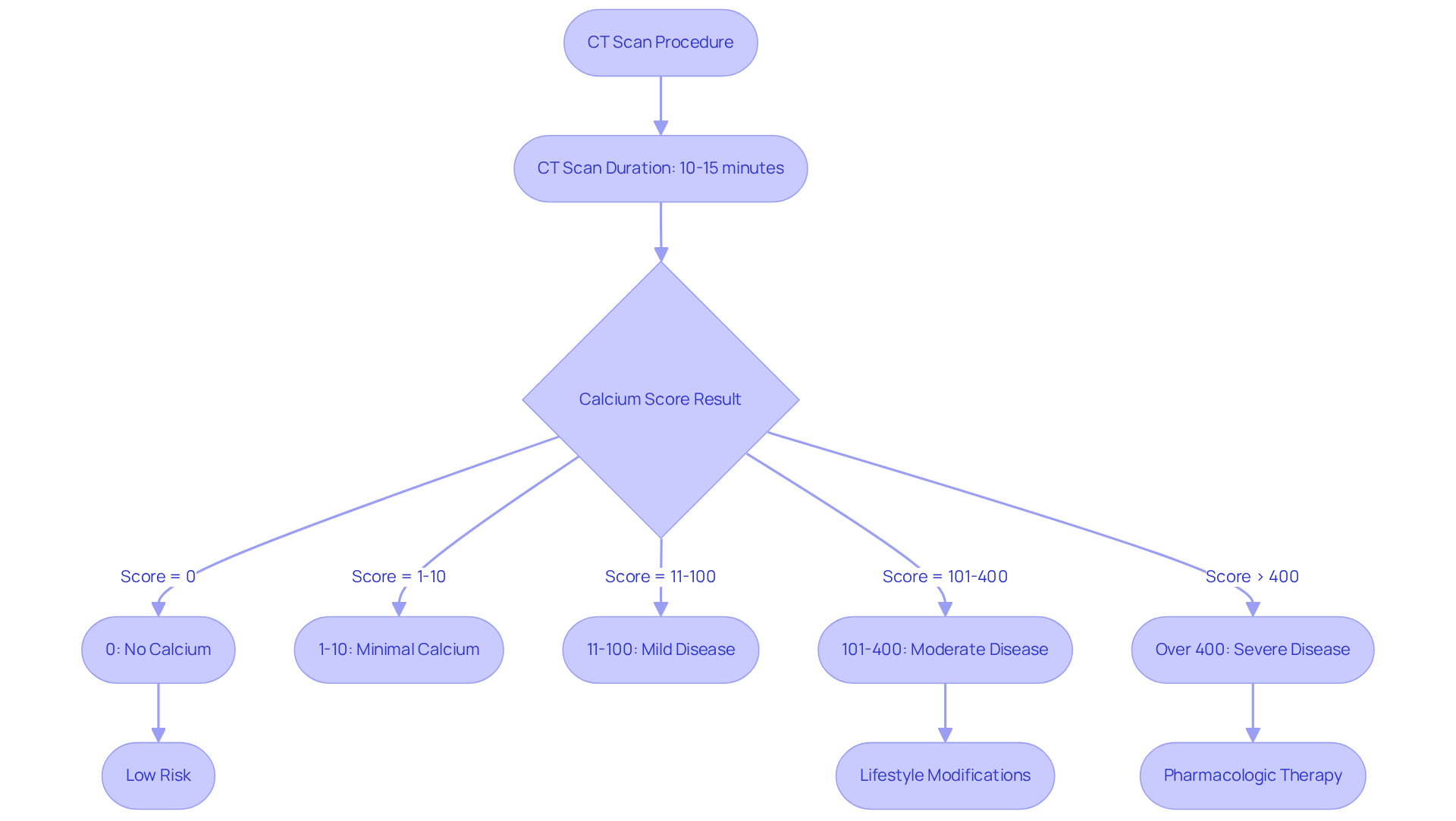


Understanding your heart health is crucial, and the CT coronary calcium score plays a vital role in this journey. This important diagnostic tool measures calcium deposits in your heart arteries, serving as a key indicator of atherosclerosis and potential heart disease risk. By grasping what this score means, you empower yourself for early detection and personalized treatment. It allows healthcare providers to assess the likelihood of coronary artery disease and implement timely interventions tailored to your unique risk level.
In addition to this, knowing your calcium score can alleviate some of the anxiety surrounding heart health. Many patients feel uncertain about their risks, but this score provides clarity and direction. It’s a step toward understanding your heart better and taking proactive measures. Remember, you are not alone in this; healthcare professionals are here to support you every step of the way.
If you have questions or concerns about your heart health, don’t hesitate to reach out for guidance. Your well-being is important, and understanding your CT coronary calcium score is a significant part of taking charge of your health. Together, we can navigate this path toward a healthier future.
The assessment of heart health has evolved significantly, and the CT coronary calcium score has emerged as a vital tool in the early detection of cardiovascular disease. This non-invasive imaging technique quantifies calcium deposits in the coronary arteries, offering crucial insights into an individual’s risk for heart disease.
As awareness of its importance grows, it’s natural to have questions:
Understanding the nuances of the CT coronary calcium score could be the key to unlocking a healthier future for many. We are here to help you navigate these concerns, ensuring you feel supported every step of the way.
The ct coronary calcium score is a vital diagnostic imaging examination that measures the amount of calcium deposits in the heart arteries. These deposits serve as an important indicator of atherosclerosis, a condition characterized by plaque buildup that can lead to heart disease. Through a computed tomography (CT) scan of the heart, detailed images are generated, allowing healthcare providers to assess the extent of calcification. Understanding the ct coronary calcium score is crucial for evaluating an individual's risk for heart artery disease (CAD), which guides subsequent diagnostic and treatment decisions.
Research shows that the prevalence of coronary artery disease is closely related to the ct coronary calcium score measurements. Studies indicate that a non-zero CAC value often places younger individuals, especially women under 55 and men under 45, in a high-risk category. Notably, approximately 60.42% of the population has a CAC score of zero, suggesting no calcified plaque and a decreased likelihood of heart-related events. This underscores the importance of the ct coronary calcium score in identifying individuals who could benefit from preventive measures and personalized treatment plans, ultimately enhancing patient outcomes in heart health.
Amavita's CardioElite™ system transforms this process by delivering hospital-quality cardiac diagnostics directly to skilled nursing facilities. By integrating AISAP's FDA-approved AI ultrasound diagnostic platform, healthcare providers can conduct thorough cardiac assessments at the bedside, providing results within minutes. This capability not only improves the accuracy of CCS evaluations but also aids in the early detection of complications, significantly lowering the chances of hospital readmissions and improving overall patient outcomes. Furthermore, ongoing innovative research aims to enhance the performance of CAC scoring, reinforcing its role as an excellent indicator of overall health and prognosis, as highlighted by Jeffrey L. Anderson, a respected research physician at Intermountain Health.

The ct coronary calcium score plays a crucial role in assessing heart health, providing a non-invasive method to evaluate the likelihood of artery disease, especially in individuals who exhibit no symptoms. When calcium levels are elevated, it indicates a higher risk of significant coronary artery blockages, which can lead to serious heart-related events. This assessment is especially important for older adults, who often face an increased prevalence of calcified plaques due to age-related changes in their vascular system. By identifying at-risk patients early, healthcare providers can begin timely interventions, such as lifestyle modifications, medications, or more invasive procedures, to effectively reduce the risk of heart attacks and other cardiovascular issues.
Consider the real-life case of a 64-year-old social worker who, despite being active and health-conscious, faced a moderate risk of a significant cardiac event. After undergoing a ct coronary calcium score test, she received a score that indicated moderate calcification. This led to the prescription of cholesterol-lowering medications, which greatly improved her heart health outcomes. Such examples illustrate how the CardioElite™ program enhances patient management through advanced imaging and timely interventions.
Statistics further highlight the importance of this evaluation. Studies show that a 10-year risk of atherosclerotic heart disease at 5% or lower suggests that medication may not be necessary, while a risk exceeding 20% indicates the need for pharmacological intervention. This nuanced understanding of risk assessment empowers healthcare providers to tailor treatment plans effectively, ultimately enhancing patient outcomes and quality of life. The CardioElite™ program specifically focuses on high-risk individuals, including those with diabetes, hypertension, or a family history of heart conditions, ensuring comprehensive care for heart health.

The journey towards understanding heart health often begins with concerns about our well-being. The idea of the ct coronary calcium score in heart health evaluation emerged in the late 1990s, coinciding with remarkable advancements in CT imaging technology. Initial research revealed a significant link between coronary calcium levels and the likelihood of coronary events, paving the way for standardized scoring systems. Over the years, thorough studies have reaffirmed the predictive significance of the ct coronary calcium score, validating its reliability as a tool for assessing heart health.
Today, the ct coronary calcium score is a scoring method that is widely utilized in clinical practice, especially for high-risk patients, including those with diabetes, hypertension, or a family history of heart disease. At Amavita Heart and Vascular Health, we prioritize your health by informing preventive strategies and treatment decisions tailored to your needs. Our advanced imaging capabilities ensure that these sophisticated tests are seamlessly integrated into comprehensive care plans, distinguishing us from other practices.
It's important to note that a ct coronary calcium score of 0 indicates a low chance of heart-related events, allowing for a more personalized approach to therapy. The Multiethnic Study of Atherosclerosis (MESA) highlighted the prognostic importance of coronary artery calcium (CAC) across diverse populations, reinforcing the necessity for individualized assessments. Furthermore, ongoing research, including the ROBINSCA trial, continues to explore the effectiveness of CAC screening in reducing heart-related morbidity and mortality.
As a result, the ct coronary calcium score has become an essential component of cardiovascular risk assessment, guiding our clinicians at Amavita in making informed decisions about your care. We understand that navigating health concerns can be daunting, but rest assured, we are here to support you every step of the way.

A quick, non-invasive CT scan of the heart, typically lasting about 10 to 15 minutes, is used to determine the CT coronary calcium score. During this procedure, you will lie on a table that gently moves through the CT machine, capturing detailed images of your heart. These images are then analyzed with specialized software to quantify the amount of calcium present in your coronary arteries. The results are reported as an Agatston measurement, categorizing calcium levels into distinct ranges:
Understanding the CT coronary calcium score is essential, as it assists your healthcare provider in identifying suitable management strategies based on your heart health profile. For example, if your CT coronary calcium score is above 100, your doctor may recommend lifestyle modifications or pharmacologic therapy. On the other hand, a CT coronary calcium score of 0 generally indicates you are at low risk for cardiovascular disease.
The CT scan process is straightforward and designed to be comfortable for you, making it an effective tool for assessing your coronary artery health and guiding preventive care. Remember, taking this step can be a proactive way to ensure your heart health is monitored and managed with care.

The CT coronary calcium score is a vital tool in understanding heart health, offering essential insights into the presence of calcium deposits in the coronary arteries. This non-invasive imaging technique not only helps identify individuals at risk for coronary artery disease but also guides personalized treatment plans that can significantly improve patient outcomes. Recognizing the importance of the CT coronary calcium score is crucial for proactive heart health management.
Key points throughout this discussion underscore the strong link between calcium levels and heart disease risk. The prevalence of coronary artery disease in those with elevated calcium scores highlights the necessity of early detection, especially among younger individuals. Moreover, the incorporation of advanced technologies, like Amavita's CardioElite™ system, enhances the accuracy of these assessments, enabling timely interventions that can prevent serious cardiac events.
Given the evidence presented, it becomes evident that the CT coronary calcium score serves as more than just a diagnostic tool; it is a fundamental component of a comprehensive strategy for cardiovascular health. We encourage individuals to view this assessment as a proactive step in their health journey, empowering themselves with knowledge that can lead to informed decisions and improved heart health outcomes. By embracing such innovative approaches, we can significantly change the course of cardiovascular care, ultimately paving the way for a healthier future.
What is the ct coronary calcium score?
The ct coronary calcium score is a diagnostic imaging examination that measures the amount of calcium deposits in the heart arteries, which indicates the presence of atherosclerosis and helps assess an individual's risk for coronary artery disease (CAD).
How is the ct coronary calcium score measured?
The score is measured through a computed tomography (CT) scan of the heart, which generates detailed images that allow healthcare providers to assess the extent of calcification in the arteries.
Why is the ct coronary calcium score important?
It is crucial for evaluating the risk of heart artery disease, guiding subsequent diagnostic and treatment decisions, and identifying individuals who may benefit from preventive measures and personalized treatment plans.
What do research findings indicate about the ct coronary calcium score?
Research shows a close relationship between the prevalence of coronary artery disease and ct coronary calcium score measurements, with non-zero CAC values often placing younger individuals at high risk. Approximately 60.42% of the population has a CAC score of zero, indicating a lower likelihood of heart-related events.
How does Amavita's CardioElite™ system enhance cardiac diagnostics?
Amavita's CardioElite™ system delivers hospital-quality cardiac diagnostics to skilled nursing facilities by integrating AISAP's FDA-approved AI ultrasound diagnostic platform, allowing for thorough cardiac assessments at the bedside with results available within minutes.
What are the benefits of using the CardioElite™ system for ct coronary calcium score evaluations?
The system improves the accuracy of CCS evaluations, aids in early detection of complications, lowers the chances of hospital readmissions, and enhances overall patient outcomes.
What ongoing research is being conducted regarding the ct coronary calcium score?
Ongoing innovative research aims to enhance the performance of CAC scoring, reinforcing its role as an excellent indicator of overall health and prognosis.